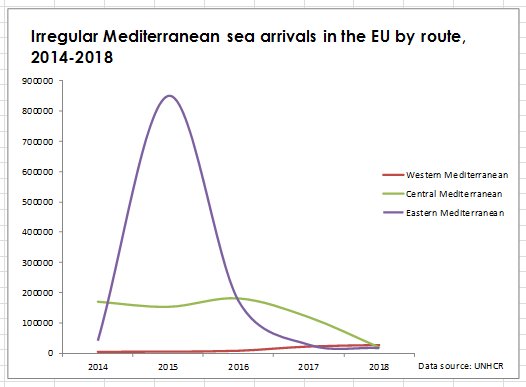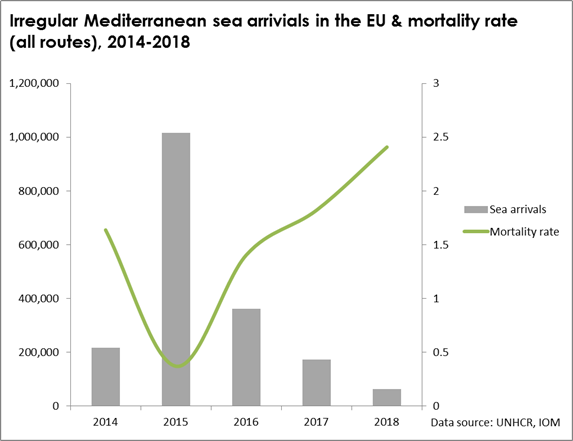Sea arrivals in #Spain are increasing.
But the closure of a #migration route doesn't mean that automatically migrants just move to a different one. There is little evidence of a 'route replacement' trend.
#migrationEU
But the closure of a #migration route doesn't mean that automatically migrants just move to a different one. There is little evidence of a 'route replacement' trend.
#migrationEU

This is an important reminder that 'immigration policies' can affect migration flows but are hardly the only factor at play. The drivers of #migration are multiple and can't be reduce to the political will 'at destination'.
There is an overall and significant decrease in sea arrivals, which should be a warning for everyone still using the word 'migration crisis', but this is not the case, see newint.org/features/web-e… #Salvini #Italy
Despite, or perhaps in association with, the decrease in sea arrivals there is a significant increase of the mortality rate at sea, ie it is becoming more dangerous to attempt the crossing 

At the peak of the #refugeecrisis in 2015, overall the mortality rate was below 1%, now despite much smaller numbers is around 2.5%, but there is more, at a closer look it is clear that the major shift is happening across one route in particular...
The Central Mediterranean route from Libya to Italy/Malta is the one where the rapid decline in arrivals (partly because some rescue boats are diverted towards other EU states) hasn't made the route safer, but on the contrary is making it more deadly. 

mediaview.aljazeera.com/video/UfvLgVsu… here I explain why #Spain is NOT the new #Greece - despite the relative increase in arrivals, and why policy makers' attention should be elsewhere, on promoting positive #integration of those already in the EU #migrationEU
So #Spain is NOT the new Greece as far as sea arrivals but not even Italy (see the beginning of the thread). Morocco is a functioning state with close collaboration with the EU and therefore more willing & capable to patrol its borders
Turkey is also capable to patrol its borders if it wants - in March 2016 it turned off the #migration tap almost overnight. Libya is still a warzone, so while money has been pouring in, borders are still porous
• • •
Missing some Tweet in this thread? You can try to
force a refresh




